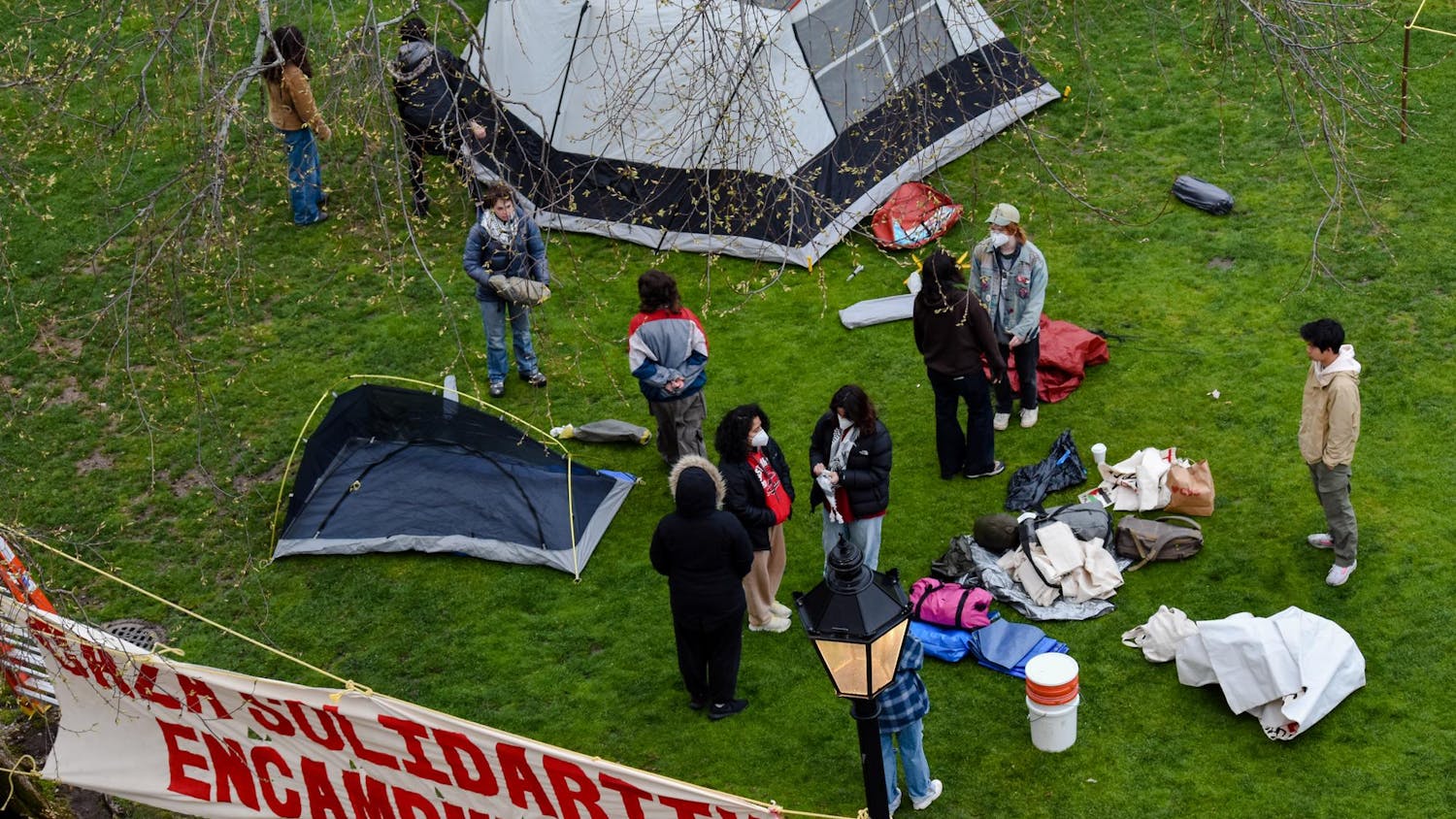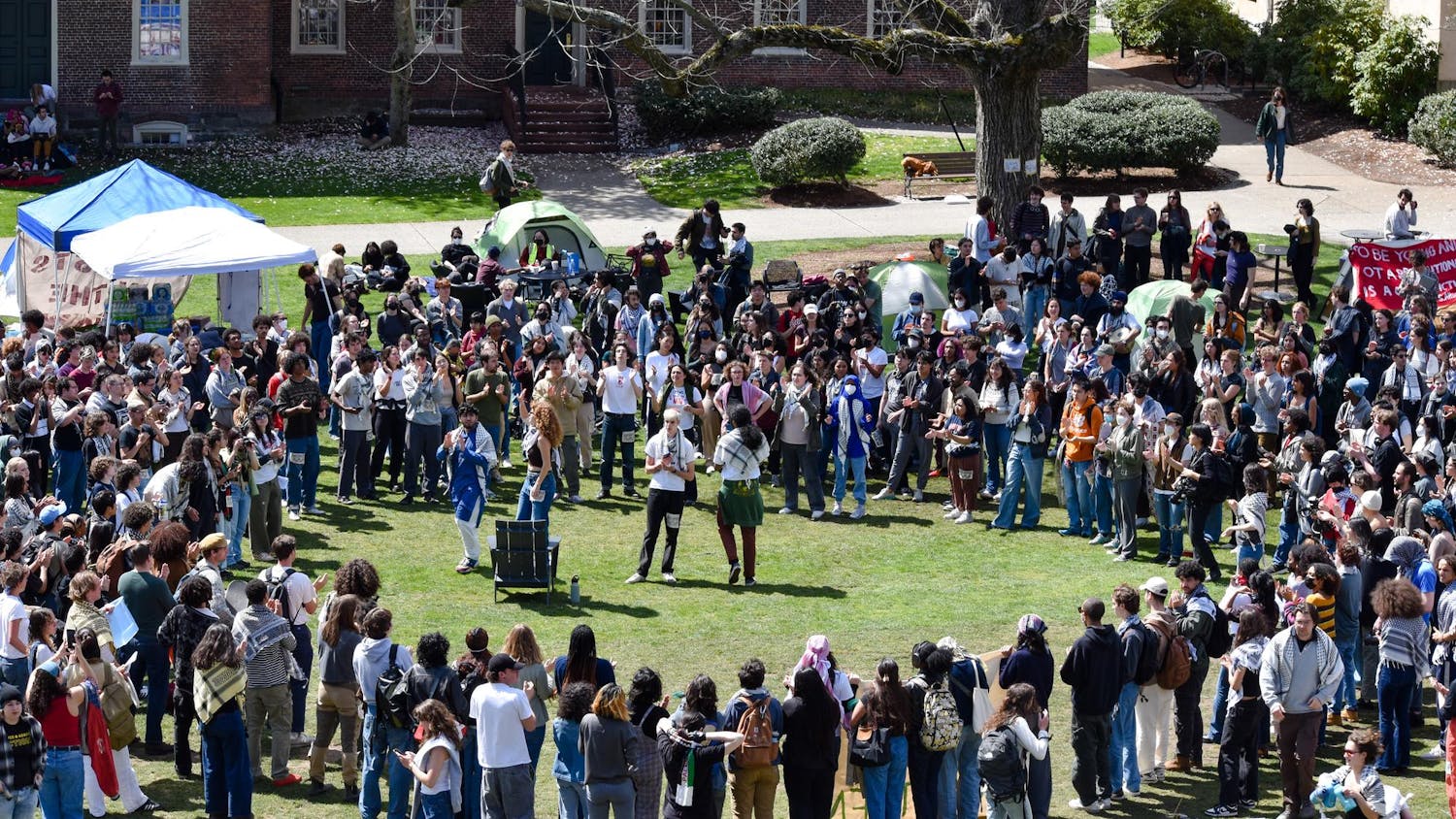International students may receive increased University support in the coming years, following a number of recommendations by both students and administrators. The University has been re-evaluating the current support system this academic year to identify ways to help international students during their transitions to Brown.
The current recommendations represent the combined efforts of Michael Lin '14, Sam Yang '14 and Lixian Wang '14, all of whom are from China.
Under the leadership of Chris Collins '11, chair of the Undergraduate Council of Students Admissions and Student Services Committee, the three international first-years analyzed the support system currently available for international students and proposed a number of initiatives — designed to enhance the overall college experience — to University administrators last semester. It is unclear when these suggestions will be approved, but feedback has been positive thus far, Collins said.
The recommendations were centered around three categories — the transition to college, time at Brown and life after graduation. Lin, Yang and Wang each tackled one of the areas.
Easing the transition
Lin, who examined the adjustment of foreign students to the University, said he noticed the lack of sufficient support services even during the International Mentoring Program orientation held in late August. Though Lin said international orientation was helpful, he was not offered the same type of support to facilitate the transition as his friends from home received at other U.S. institutions.
Lin proposed that the orientation program offer the kind of support available at other universities — for example, providing city tours and assisting students with setting up bank accounts and obtaining cell phones. He also suggested the University run airport shuttles for international students because it can be a hassle for students to find a ride after hours of traveling. The shuttles would run at designated times from T.F. Green Airport and Boston's Logan International Airport so students could plan accordingly, Collins said. Cornell, Amherst College and the University of Virginia are among the schools that offer airport pickup services for international students.
Because students need to adjust to the time zone and shop for necessary supplies, Lin said a longer orientation would be helpful. Under the current orientation structure, students are unable to fully engage themselves in activities because they are tired and have other things to get done before school starts, he said.
Lin said support for the cultural and linguistic transition should also be enhanced. A number of international students, including Lin, participated in Excellence at Brown, a pre-orientation academic preparation program, but found the program too challenging, he said. He supports the creation of a less intensive reading and writing program, which could introduce college-level literature and composition to students whose first language may not be English.
But Lin and Collins said the transition process could start even before students arrive on campus. Inspired by the online summer tutorial of CHEM 0100: "Introductory Chemistry," they proposed the creation of an online course that introduces students to various aspects of American culture, conversation and education.
Continued immersion
Yang focused his efforts on the on-campus experience and proposed measures that would provide continuous support for international students.
Building on the goals of Lin's proposed tutorial and orientation program, Yang recommended the creation of a workshop in which five to seven international students would be paired with an upperclassman. The informal setting would allow students to practice common expressions and discuss issues relating to American culture and conversation. It would serve as "a family group that international students can interact with," Yang said.
Yang also advocated for the creation of a language exchange program through which international students and native English speakers interested in studying the international students' languages could be paired. The program would not only benefit foreign students, but also students from English-speaking backgrounds, who could learn about other cultures and customs.
Yang said the International Mentoring Program becomes less involved as the year progresses. He recommended that the program increase the number of mentors to foster individual attention.
Alums around the world
While Lin and Yang considered their own experiences in formulating propositions, Wang depended primarily on feedback from upperclassmen to make suggestions regarding the job search process and life after graduation for international students. He said his portion of the project addressed two focus points — integration of international students into the U.S. employment arena and University outreach to employment options abroad.
The employment search process begins on campus for international students through the Career Development Center and the Office of International Student and Scholar Services. But the search process for international students can be complicated and daunting, Wang said. The international student and scholar services office deals mainly with legal issues, and the CDC provides general, rather than industry-specific, services.
Following graduation, international students could serve as representatives of the University to attract potential applicants and help Brown students and alums find foreign employment. The University currently does not provide extensive support for students seeking employment in other countries, but if Brown maintains strong connections with alums abroad, it will become easier for students to identify foreign internship and employment options, Wang said. The language exchange program introduced by Yang could also ease the transition of students to foreign environments.
Changes in the works
The University will provide international students with transportation from T.F. Green and Logan International airports starting this fall, said Margaret Klawunn, vice president for campus life and student services. Orientation will also be extended a day to introduce students to the American education environment. Klawunn has expressed complete support for Lin's proposals and declared immediate steps should be taken, he said.
The progress of other initiatives is less certain, but "feedback was always positive," Collins said. Klawunn said she hopes all proposals will move from the planning stage to implementation within a year.
Though some proposed developments such as the airport shuttle may require additional funding, most projects will be student-run and will not result in increased University spending, Collins said.
The idea for the international student project arose at the first UCS general body meeting of the academic year, attended by Klawunn and Dean of the College Katherine Bergeron. Collins said the two were interested in international student life, and their ideas clicked with Lin, Yang and Wang.
Due to the University's recent internationalization efforts and global outreach, there had already been a push for change among administrators, Klawunn said. But Lin, Yang and Wang brought concrete ideas to the table and propelled the project forward. Klawunn and Bergeron hosted a January retreat for international students to brainstorm additional ideas for short-term and long-term projects. The project aims to eventually create a comprehensive office that manages international student affairs, Klawunn said.
Peter Weber, dean of the Graduate School, is also working to introduce an orientation program for international graduate students, Klawunn said.




